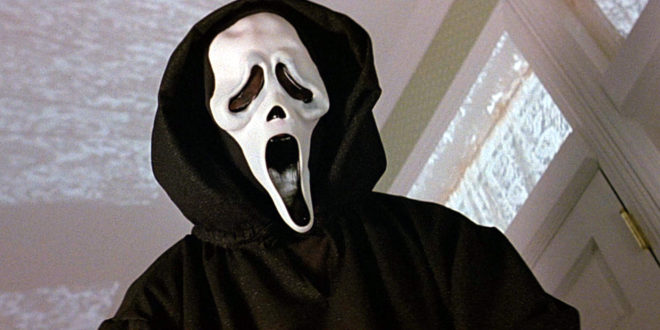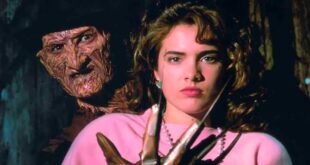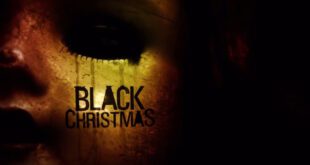I have come here to chew bubblegum and give unpopular horror movie opinions – and I’m all out of bubblegum. At the risk of internet-shaming and hate mail, I want to speak a quiet truth that genre die-hards would consider blasphemy. In a community that worships the films of Halloween, Friday the 13th, and A Nightmare on Elm Street, it’s a hard sell to preach the superiority of anything else, but I cannot in good conscience go without noting that Scream is the best slasher film series.
Whoa, settle down.
Before you treat this like an act of genre injustice and take to the streets with signs that unfavorably compare me to soggy alley trash, allow me to explain myself. All insulting comparisons are then fully validated.
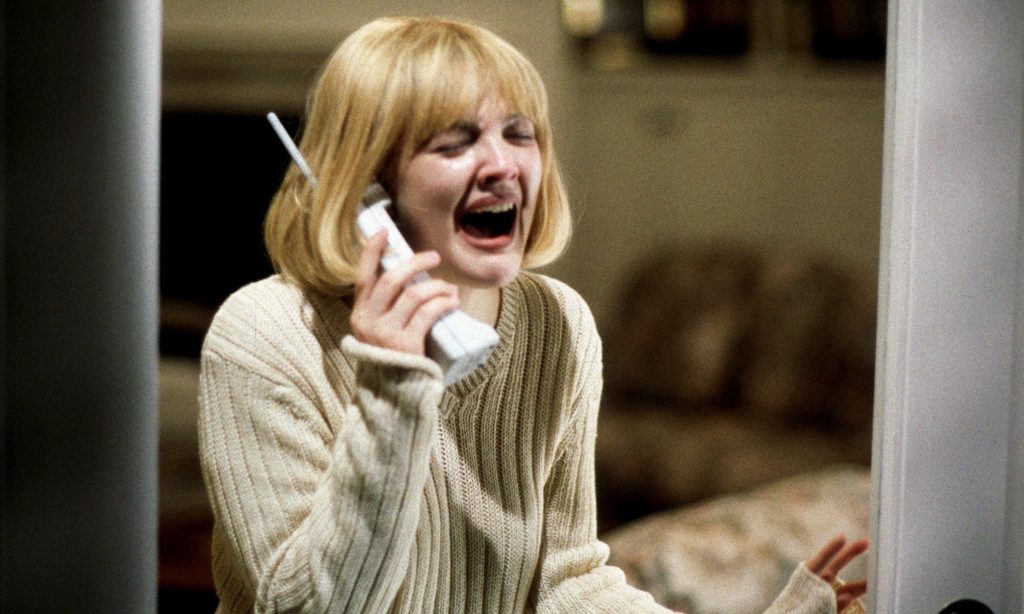
Long before Scream was released in 1996, Wes Craven had already gained notoriety for his ability to shake up the slasher subgenre. Having already directed numerous horror classics, including two of the aforementioned Elm Street films, Craven’s stock as a genre filmmaker couldn’t have possibly been any higher… or so we thought.
I don’t know how many of you are sports fans, but they’ve played a humongous role in my life, so I’m going to hit you with a basketball analogy. Every NBA superstar has a teammate that helps him shine. In the case of Scream, so did Wes Craven. If Craven is the Michael Jordan of the Scream Team, then writer Kevin Williamson is undeniably his Scottie Pippen. The script of the original Scream alone proves the worth of Williamson within the franchise. Taking a meta approach that is ultra-aware of horror tropes, and even going so far as to spell those very tropes out for the audience, the film pays homage to countless horror films that came before it, while also crafting a frequently scary and wholly investing mystery at its core. That’s one hell of a balancing act, but Williamson’s script handled it with confidence and set Wes Craven up for another wild wave of success.
That same meta approach would be applied to all four films of the series, as Williamson (except for the third film) and Craven continued playing with the tropes of horror sequels. With this self-awareness, the Scream franchise managed to set itself apart from the classic slashers of the past, but unique doesn’t necessarily equal superior, does it?
No. The meta-ness comes bundled in a success package of mystery, A-list talent, and fully realized central characters and their character arcs that we genuinely care for throughout the progression of the series.
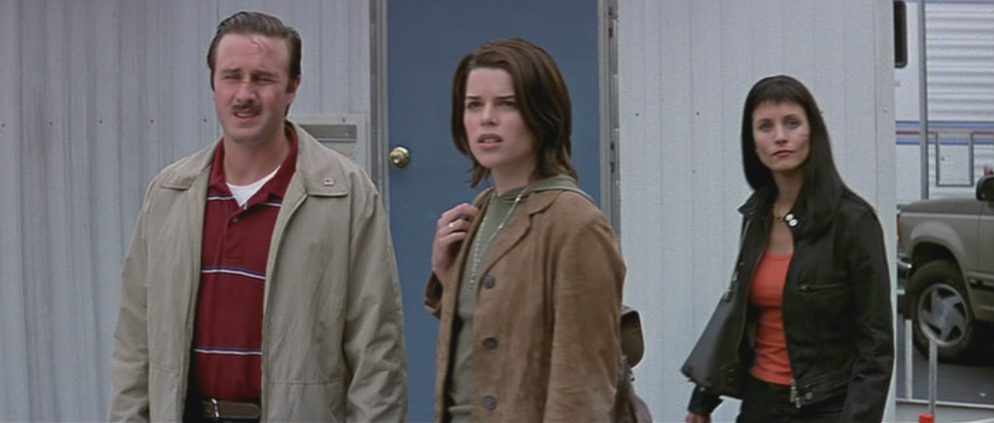
While watching the popular slasher franchises, you’re always aware of who and what the threat of danger and death is. In the Halloween films, save for Season of the Witch, you know that Michael Myers will be killing a bunch of folks. In the majority of the Friday the 13th films, you know that the killer is Jason Voorhees. With Elm Street, it’s Freddy Krueger. These things are a given. The Scream films, however, offer audiences a different kind of threat. The killers are people you know and have see every day. They’re your friends. They’re your lovers. Craven and Williamson never reveal more information to the viewer than the story does to our characters, so we’re always wary of who can be trusted and who’s a suspect.
That mystery keeps the danger fresh, even if every killer dons the same type of Ghostface costume in each installment, but that’s not the only thing about each villain that sets Scream on a pedestal above the other slasher franchises. It’s also, in part, because of the motivation of those killers. Save for a couple of the side villains in the film series, the killers boast emotional and pain-driven motivation to devastate and end Sidney Prescott, based on how her life and story intertwines and destroys their own happiness and normalcy. There’s more to the killers than being some sort of supernatural entity or just being straight up evil. They’re tormented by the way their lives have been upended and altered, and when their motivations come to light, Craven and Williamson utilize the revelation to build character. In each passing film, we see the way that our characters have been affected by past events, and these developments of character are unparalleled in slasher cinema.
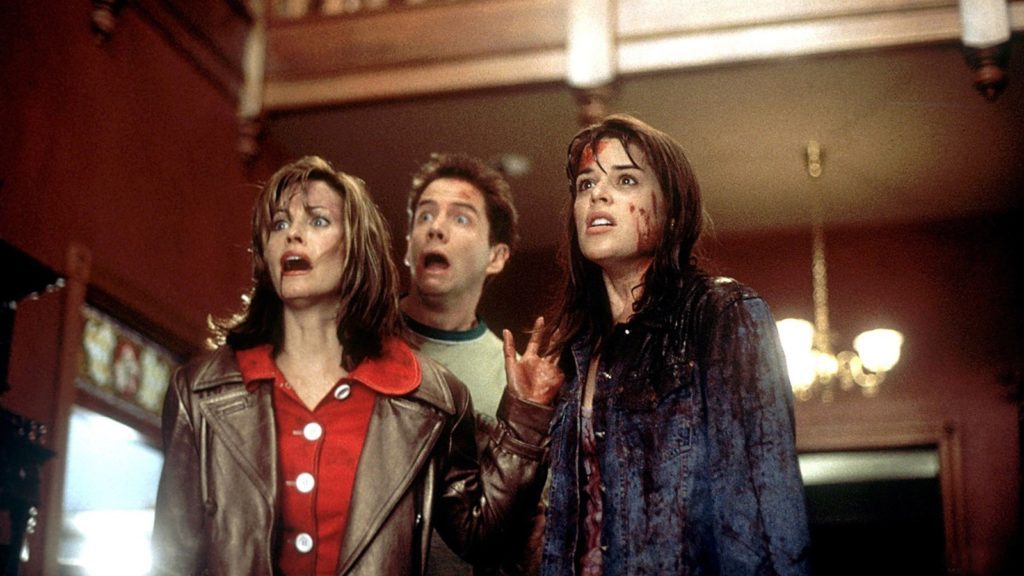
Those same characters, if we’re being honest, are the heart of the Scream films and the most important note of my argument. No slasher series come close to emotionally investing viewers in their characters the way that Scream does throughout all four movies. Sure, there are characters that we root for: Laurie Strode, Nancy Thompson, Chris Higgins… but who among those do you feel a true connection to? These are characters in a movie that never feel as though they exist to our real world. While they aren’t without detail, they pale in comparison to the fleshed out trio at the center of the Scream movies.
Sidney Prescott, Gale Weathers, and Dewey Riley end the series in a vastly different place than they started. The emotionally damaged Sidney became arguably the strongest horror movie heroine we’ve ever seen, while Gale, who began the series interested in only her own fame, became a fierce and loyal friend, willing to die for the people she’d once wanted to exploit, and Dewey, the lovably goofy deputy and weak link of the sheriff’s department, became a competent protector of those he cared about. These characters suffered together, grew together, and came out on the other side, forever altered by the events of their lives but facing it TOGETHER as survivors of a decades-spanning nightmare. We remain wholly invested in these characters and their fight for survival, and losing them, as we saw when Randy Meeks was killed in Scream 2, would be devastating. No other slasher franchises offer audiences that sort of character attachment, but then again, as a whole, no other slasher franchises are as great as Scream.
Let’s talk about it.
 PopHorror Let's Get Scared
PopHorror Let's Get Scared
